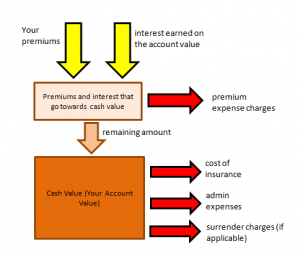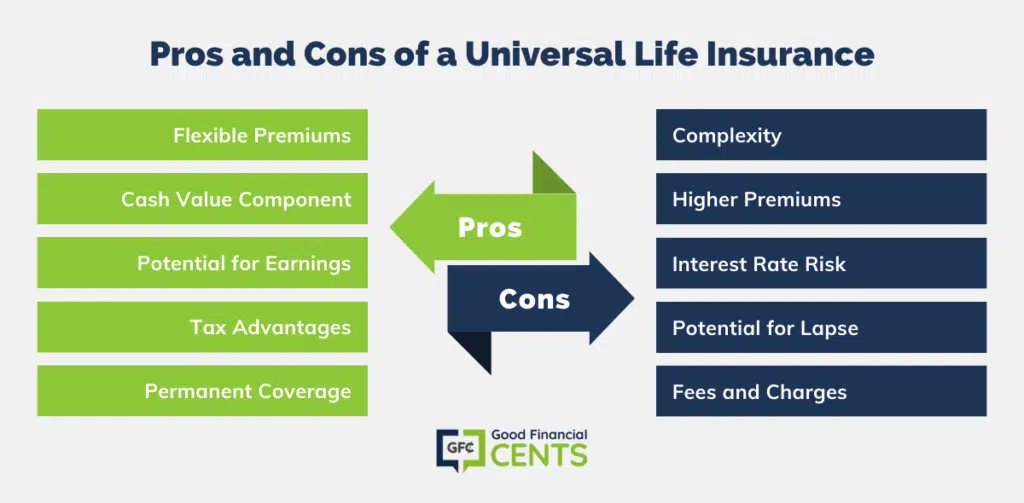All Categories
Featured
Table of Contents
1), often in an effort to beat their group standards. This is a straw male disagreement, and one IUL individuals love to make. Do they compare the IUL to something like the Lead Total Amount Securities Market Fund Admiral Show to no tons, an expense proportion (EMERGENCY ROOM) of 5 basis points, a turnover ratio of 4.3%, and an exceptional tax-efficient document of circulations? No, they contrast it to some dreadful proactively managed fund with an 8% tons, a 2% EMERGENCY ROOM, an 80% turnover proportion, and a horrible document of temporary funding gain circulations.
Mutual funds frequently make yearly taxed circulations to fund owners, even when the value of their fund has actually decreased in worth. Mutual funds not just require earnings coverage (and the resulting annual taxation) when the mutual fund is going up in value, yet can likewise enforce income taxes in a year when the fund has decreased in value.
You can tax-manage the fund, collecting losses and gains in order to reduce taxable distributions to the financiers, yet that isn't in some way going to alter the reported return of the fund. The ownership of mutual funds may call for the shared fund proprietor to pay estimated taxes (what is fixed universal life insurance).

IULs are simple to place to ensure that, at the proprietor's death, the recipient is not subject to either revenue or inheritance tax. The very same tax reduction methods do not work almost too with common funds. There are numerous, typically expensive, tax obligation traps connected with the moment purchasing and selling of common fund shares, traps that do not apply to indexed life Insurance coverage.
Opportunities aren't really high that you're going to undergo the AMT because of your common fund circulations if you aren't without them. The rest of this one is half-truths at ideal. While it is real that there is no earnings tax obligation due to your beneficiaries when they acquire the proceeds of your IUL plan, it is likewise true that there is no income tax obligation due to your successors when they inherit a shared fund in a taxable account from you.
Universal Life Insurance Quote Calculator
The government estate tax exemption restriction is over $10 Million for a pair, and growing annually with inflation. It's a non-issue for the substantial bulk of physicians, much less the rest of America. There are far better means to avoid estate tax obligation issues than acquiring investments with low returns. Common funds might trigger revenue taxation of Social Safety advantages.
The growth within the IUL is tax-deferred and might be taken as free of tax earnings through financings. The policy owner (vs. the shared fund supervisor) is in control of his or her reportable income, thus enabling them to minimize or also get rid of the tax of their Social Security advantages. This set is fantastic.
Here's another very little concern. It holds true if you acquire a shared fund for claim $10 per share just prior to the distribution day, and it distributes a $0.50 distribution, you are after that mosting likely to owe tax obligations (probably 7-10 cents per share) regardless of the fact that you have not yet had any kind of gains.
In the end, it's really regarding the after-tax return, not how much you pay in taxes. You are going to pay even more in taxes by utilizing a taxed account than if you buy life insurance. You're likewise most likely going to have even more cash after paying those tax obligations. The record-keeping demands for possessing mutual funds are substantially a lot more complex.
With an IUL, one's records are maintained by the insurer, duplicates of yearly declarations are mailed to the proprietor, and circulations (if any) are completed and reported at year end. This is additionally type of silly. Obviously you ought to keep your tax obligation records in case of an audit.
Index Assurance
Rarely a reason to get life insurance. Shared funds are generally component of a decedent's probated estate.
In addition, they are subject to the delays and costs of probate. The profits of the IUL plan, on the other hand, is always a non-probate circulation that passes outside of probate directly to one's named recipients, and is as a result exempt to one's posthumous creditors, unwanted public disclosure, or similar delays and prices.
We covered this under # 7, but simply to recap, if you have a taxed common fund account, you need to place it in a revocable depend on (or perhaps less complicated, use the Transfer on Fatality designation) in order to prevent probate. Medicaid incompetency and life time earnings. An IUL can supply their proprietors with a stream of revenue for their entire life time, despite the length of time they live.

This is helpful when organizing one's affairs, and transforming assets to income prior to a retirement home arrest. Mutual funds can not be converted in a comparable fashion, and are usually thought about countable Medicaid assets. This is an additional dumb one supporting that poor people (you recognize, the ones who require Medicaid, a government program for the bad, to spend for their assisted living facility) must utilize IUL instead of shared funds.
Iul Insurance Calculator
And life insurance policy looks horrible when compared fairly versus a retired life account. Second, people that have money to purchase IUL above and past their pension are mosting likely to have to be awful at taking care of money in order to ever qualify for Medicaid to pay for their assisted living home prices.
Chronic and terminal illness motorcyclist. All plans will permit a proprietor's simple accessibility to cash money from their policy, usually waiving any abandonment charges when such people suffer a serious illness, need at-home treatment, or become restricted to an assisted living facility. Common funds do not give a comparable waiver when contingent deferred sales fees still relate to a common fund account whose owner requires to market some shares to fund the prices of such a stay.
Benefits Of Iul Insurance
You get to pay more for that benefit (rider) with an insurance plan. Indexed global life insurance policy supplies death benefits to the recipients of the IUL proprietors, and neither the owner neither the beneficiary can ever shed cash due to a down market.
I definitely do not require one after I get to economic self-reliance. Do I desire one? On standard, a purchaser of life insurance coverage pays for the true expense of the life insurance advantage, plus the prices of the policy, plus the revenues of the insurance coverage firm.
Difference Between Whole Life And Iul
I'm not entirely certain why Mr. Morais included the whole "you can not lose cash" once again right here as it was covered fairly well in # 1. He simply wished to duplicate the most effective selling factor for these points I mean. Once again, you do not shed small dollars, but you can shed actual bucks, as well as face significant chance price as a result of reduced returns.

An indexed universal life insurance policy policy owner may exchange their plan for a completely different policy without activating earnings taxes. A common fund proprietor can stagnate funds from one common fund company to another without selling his shares at the former (hence activating a taxed event), and redeeming new shares at the last, commonly subject to sales charges at both.
While it holds true that you can trade one insurance plan for an additional, the reason that individuals do this is that the initial one is such a terrible policy that even after purchasing a brand-new one and undergoing the early, adverse return years, you'll still appear ahead. If they were marketed the ideal plan the initial time, they shouldn't have any type of wish to ever before trade it and undergo the early, unfavorable return years once more.
Latest Posts
Guaranteed Ul Insurance
Equity Indexed Life Insurance
Index Universal Life Insurance Vs Whole Life